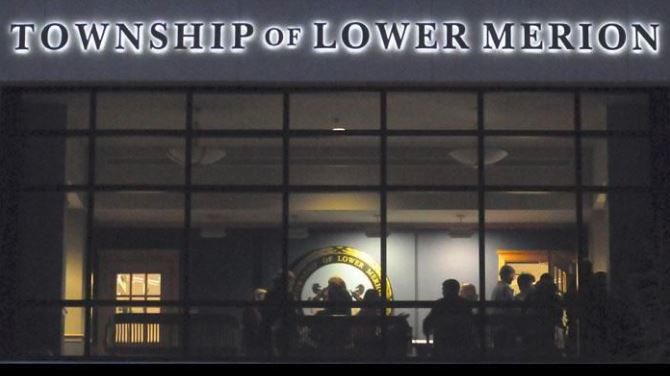LOWER MERION — During a meeting in early April, the Lower Merion Public Works Committee recommended the board of commissioners approve the expansion of the eruv in Bala Cynwyd.
According to township officials, the expanded Lower Merion eruv would include one square block that is bounded by City Avenue, Conshohocken State Road, St. Asaph’s Road, and Belmont Avenue.
So, what exactly is an eruv?
“An eruv is an area under a single ownership, enclosed by a wire boundary as well as fences, walls, or natural boundaries such as steep hills, cliffs, and deep channels, which symbolically extends the private domain of Jewish households into public areas, permitting activities within it that are normally forbidden in public on the Jewish Sabbath and holidays,” according to a staff memo to the commissioners.
Paul McElhaney, director of the Lower Merion Department of Public Works, said there is no cost to the township.
“We’ve updated this several times over the past — it is at no cost to us as they maintain and do any maintenance on it,” McElhaney said. “It’s just that they basically need our permission to be within our right-of-way and so forth. So very simple, it’s a very understanding of the Jewish faith and allowing people to be able to do certain things on the day of Sabbath.”
The existing Bala Cynwyd eruv includes a large section of Bala Cynwyd along Interstate 76 to around Mill Creek Road. It also runs along Conshohocken State Road and then through Penn Valley and parts of Narberth to the SEPTA/Amtrak tracks going towards City Ave. At the tracks, a separate Eruv includes the south side of Narberth and parts of Merion, Wynnwood, and Penn Valley.
The expansion includes the Bala Cynwyd Shopping Center, as well as the new apartments that have been and are being constructed on the site.
“Just as a bit of history, I think it’s a wonderful opportunity to show our good faith for their faith, and this is an Orthodox law respected by Orthodox Orthodoxy in the Jewish religion,” said Commissioner Louis Rossman. “Years ago, before the eruv, women would have to stay home and care for their children. They could not push a baby carriage. They could not carry a bottle of wine to a neighbor’s house for lunch on the Shabbat. So this permits them to do it in this in this area, so I thank you all. I think it’s a great thing to move forward.”

